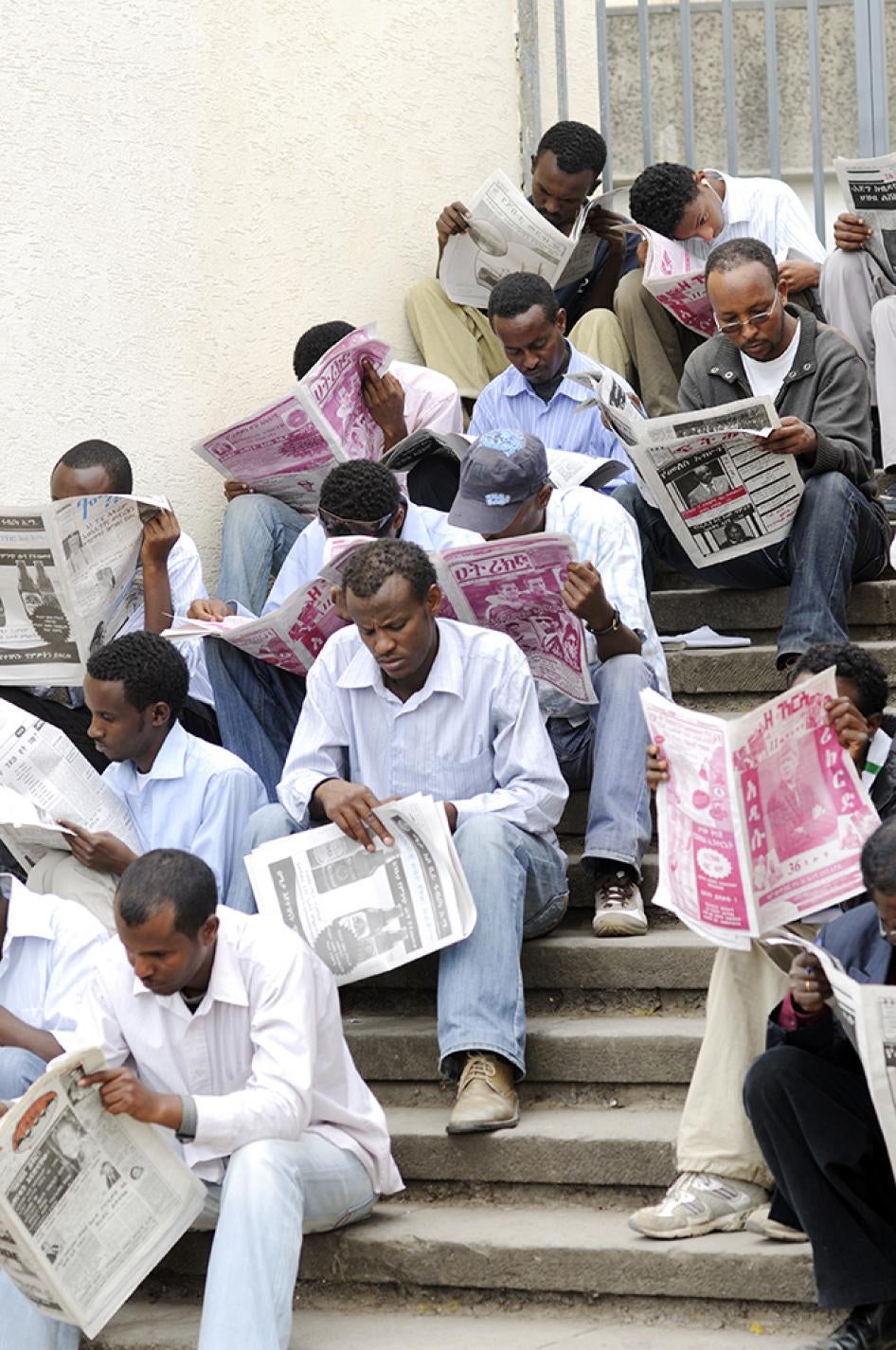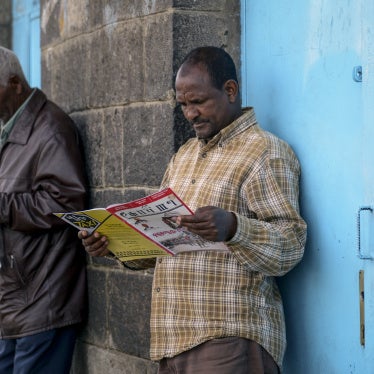The good news is that four Ethiopian bloggers, who were arrested in 2014 after writing posts critical of the government, have been acquitted by the country’s high court today of terrorism charges. Never mind that fact that these bloggers – part of a group known as the Zone 9 bloggers – already spent 539 days in prison and had 39 court hearings. (A fifth, who had been charged in absentia, was also acquitted).
The bad news is that despite this welcome, long overdue judgment, at day’s end all four were still in detention. One of them is still under the shadow of a criminal conviction, and many other individuals, including journalists, remain in jail with little international attention to their plight.
On April 25 and 26, 2014, six of the Zone 9 bloggers and three journalists were arrested, including the four acquitted today. Two bloggers and the three journalists were released in July, days before United States President Barack Obama’s visit to Ethiopia.
Today’s acquittal is wonderful news for these individuals and their families. But today’s judgment cannot reverse the months in prison that these nine people have lost for no good reason. Their detention and treatment has been marked by serious due process failures. There have been allegations of mistreatment in detention and claims that the witness statements read out in court today were obtained under duress.
At the beginning of their imprisonment, they were held at the notorious Maekelawi prison, where Human Rights Watch and others have documented numerous cases of forced confessions by torture. These confessions have often been presented as evidence in court to convict individuals under Ethiopia’s criminal code and the repressive anti-terrorism law. Complaints to the court about mistreatment in detention have been routinely ignored, as they were in the Zone 9 blogger cases. There have been no known investigations into the use of forced confessions by Ethiopian courts.
The Ethiopian court’s judgment today is an important step – but only if it is the first of a broader set of policy changes aimed at reversing the stranglehold on press freedom and freedom of expression that Ethiopia’s government has imposed for the past decade. Releasing other imprisoned journalists and activists and amending the draconian laws that prosecutors are using to wrongfully detain and convict are the necessary next steps.










